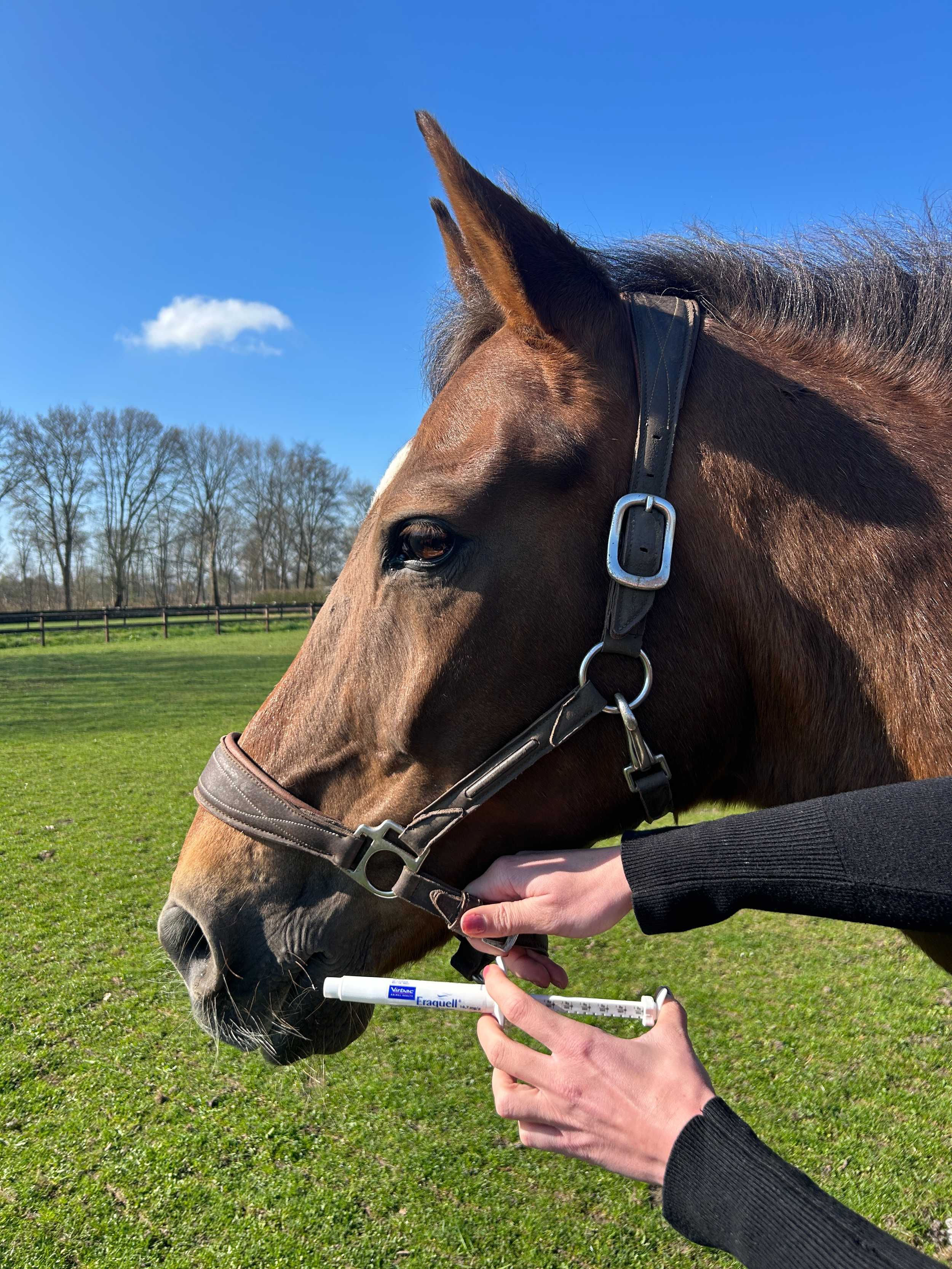It is important to carefully consider whether your horse needs a preventive treatment. This depends on several factors. Our team is happy to explain why preventive deworming is recommended and what the alternatives are.
Why is a one-time preventive deworming recommended?
It is often advised to deworm once a year preventively due to encysted small strongyles, botfly larvae, and tapeworms. Below we explain why these gastrointestinal worms are difficult to detect through manure testing.
Worm&Co customers always receive an end-of-year advice email and a message about the best time to administer the treatment, if needed. Research has shown that due to "mild" winters, pastures can remain infectious longer. Infectious larvae can survive on pasture for up to 3 months, especially at lower temperatures. Infectious larvae are killed during moderate to severe frost.
Botfly larvae
More than 50% of horses in the Netherlands are infected with botfly larvae, although the infection is often asymptomatic. Occasionally, horses may show mild inflammation of the oral mucosa shortly after ingesting large numbers of eggs. In very severe infestations, which are extremely rare, the passage from the esophagus to the stomach may be partially blocked, causing difficulty in eating. Botfly larvae cannot be detected through manure testing because the botfly lays its eggs on the outside of the horse.
If a horse owner wishes to treat against botfly larvae, for example because many eggs were visible on the coat, we recommend doing so after the first night frost. Night frost kills the live botfly flies and eliminates the risk of reinfection after the horse is treated. Often, a specific treatment for botfly larvae is not necessary.
Tapeworm
Because tapeworms release their eggs in segments, fecal testing is not suitable for detecting them. Sometimes, tapeworm eggs are found during routine fecal testing, but these are usually coincidental. Since the eggs are released in segments, there is no correlation between the presence of eggs and the severity of the infection, unlike with other intestinal worms. To rule out a tapeworm infection, you can use the Equisal saliva tapeworm test. Read more about the tapeworm on our website.
Encysted small redworm
When infectious larvae are ingested, they immediately penetrate the intestinal wall upon arriving in the large intestine. After a development period of at least 6 weeks, both in the intestinal wall and content, adult egg-laying worms are found in the intestines.
Larvae can also migrate for several months within the intestinal wall. Because they continuously move, the horse’s immune system often struggles to respond, resulting in inflammation of the intestinal wall — especially in young horses.
Small redworm larvae have the unique ability to enter a kind of dormancy, becoming encysted in the intestinal wall. Whether a larva enters this state or develops directly into an adult depends on many factors: age, season, immunity, etc.
Adult worms in the intestinal lumen communicate with the larvae in the wall, signaling that there are already enough egg-laying worms, encouraging the larvae to remain dormant. These encysted larvae can persist in the intestinal wall.
Only the active ingredient Moxidectin is effective against encysted small redworm. Other dewormers are ineffective at this stage. View our schedule of available active ingredients for different equine worms. Read on our website which worms can be treated with Moxidectin. It is advisable to combine this treatment with one for tapeworm and botfly larvae. Read more about bloodworms on our website.
Are there alternatives to preventive deworming?
Yes, absolutely — and every year more horse owners choose not to deworm preventively. The most important thing is that the decision suits your situation. If you’ve consistently tested manure 3–4 times a year and used the Equisal saliva tapeworm test, preventive deworming may not be necessary. At Worm&Co, our unique online system allows us to work with (parasitology) veterinarians to determine what’s best for your horse and whether preventive deworming is appropriate.
Worm&Co makes it easy. Our customers always receive an email reminder. If you have any questions, feel free to contact us.

